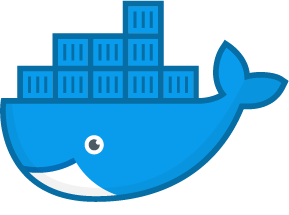Lab #24: Use JSON instead of YAML compose file in Docker?
Yaml is a superset of json so any JSON file should be valid Yaml. To use a JSON file with Compose, specify the filename to use. In this lab we are going to bringup our same nginx and mysql containers using docker-compose file in json format.
Pre-requisite:
Tested Infrastructure
| Platform | Number of Instance | Reading Time |
|---|---|---|
| Play with Docker | 1 | 5 min |
Pre-requisite
- Create an account with DockerHub
- Open PWD Platform on your browser
- Click on Add New Instance on the left side of the screen to bring up Alpine OS instance on the right side
Setup environment:
$ mkdir Myapp
$ cd Myapp
Now lets create passowrd file for our DB:
$ openssl rand -base64 32 > db_password.txt
$ openssl rand -base64 32 > db_root_password.txt
Create a myapp.json file:
{
"version": "3.1",
"services": {
"webserver": {
"image": "nginx:alpine",
"container_name": "webserver",
"restart": "unless-stopped",
"ports": [
"80:80",
"443:443"
]
},
"db": {
"image": "mysql:5.7",
"container_name": "Mysqldb",
"restart": "unless-stopped",
"volumes": [
"db_data:/var/lib/mysql"
],
"ports": [
"3306:3306"
],
"environment": {
"MYSQL_ROOT_PASSWORD_FILE": "/run/secrets/db_root_password",
"MYSQL_DATABASE": "wordpress",
"MYSQL_USER": "wordpress",
"MYSQL_PASSWORD_FILE": "/run/secrets/db_password"
},
"secrets": [
"db_root_password",
"db_password"
]
}
},
"secrets": {
"db_password": {
"file": "db_password.txt"
},
"db_root_password": {
"file": "db_root_password.txt"
}
},
"volumes": {
"db_data": null
}
}
Bringup the container and run as daemon
$ sudo docker-compose -f myapp.json up -d
List out the compose services:
$ docker-compose -f myapp.json ps
Name Command State Ports
------------------------------------------------------------------------------------------
Mysqldb docker-entrypoint.sh mysqld Up 0.0.0.0:3306->3306/tcp, 33060/tcp
webserver nginx -g daemon off; Up 0.0.0.0:443->443/tcp, 0.0.0.0:80->80/tcp
Verify the nginx is running:
$ curl http://localhost
Verify the Mysql db:
$ docker exec -it Mysqldb mysql -u root -p
Enter the root password which is in db_root_password.txt
